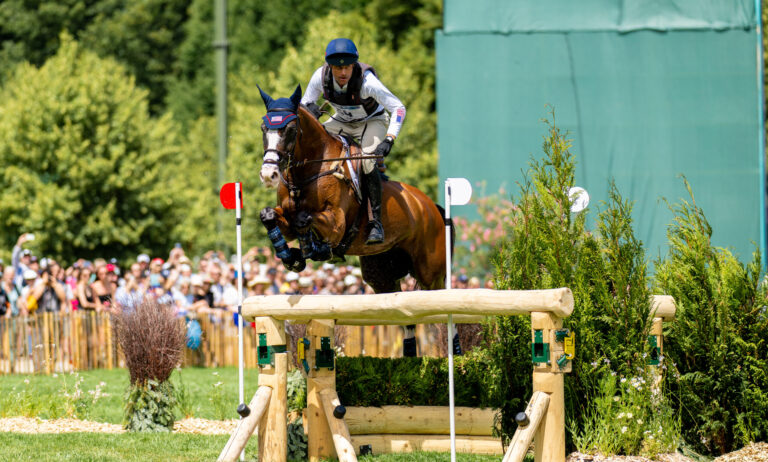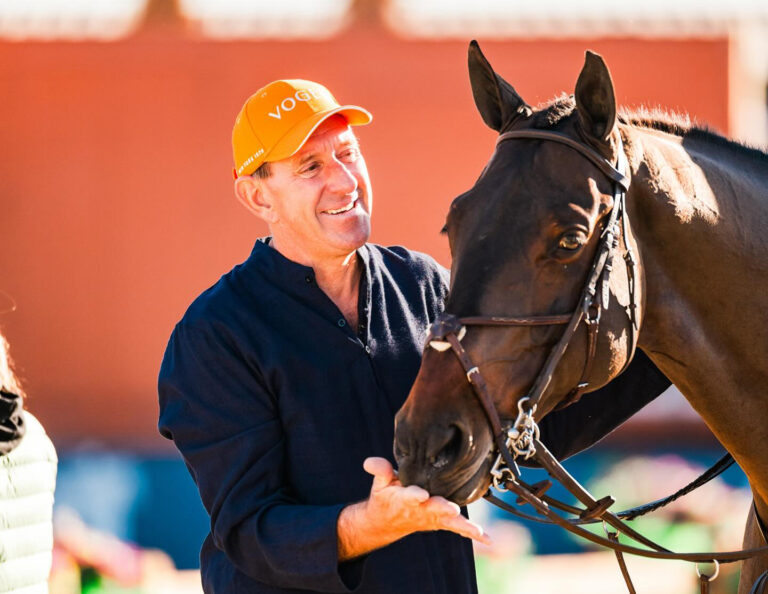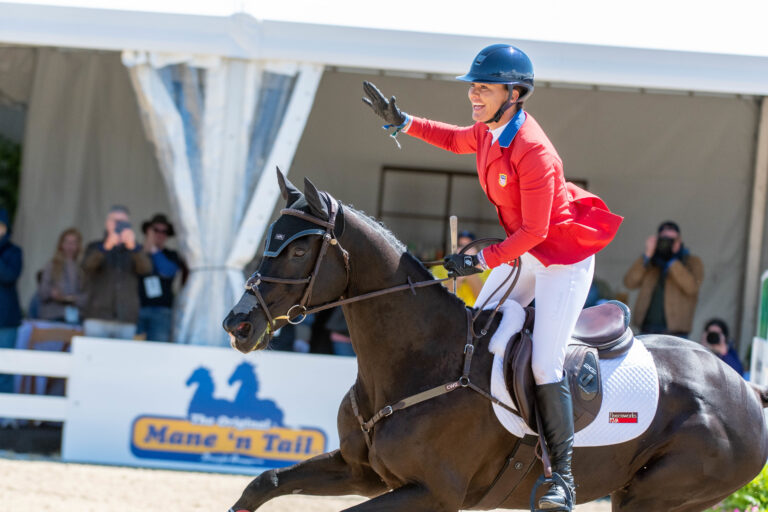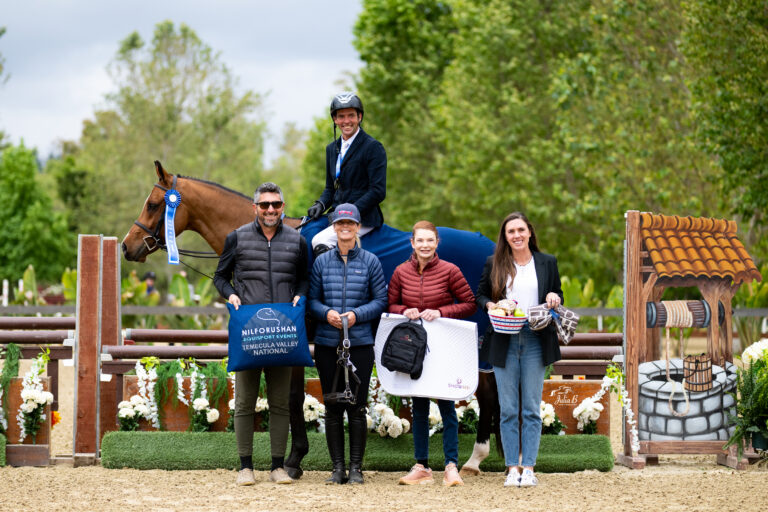
Show jumping fans know Hunter Harrison as the name behind the famous Double H Farm, owner of superstar horses like the two-time Olympic team gold medal winner Sapphire and FEI Jumping World Cup™ Final winner HH Azur. Harrison was also influential in show jumping as he initiated sponsorship of top events from the CN and CP railroad companies.
The first six chapters of Railroader, Howard Green’s insightful biography of Hunter Harrison, describe Harrison’s early life through his incredibly successful stint as CEO of CN. His portrayal of Harrison’s childhood shows just how his personality and early years shaped his career, with details of teenage years that Harrison himself described as those of a “juvenile delinquent,” his promising athletic career that was cut short, and his time working as a carman oiler at the railyard.
Green reveals many fascinating details about Harrison’s career and personal life, including how his demanding and no-nonsense approach to railroading led to a “love him or hate him” view of him. After 26 years working his way up at Burlington-Northern Railroad, he transitioned to Illinois Central (IC) railroad, where he was made CEO in 1993. When Canadian National railroad acquired IC in 1998, he was Vice President and Chief Operating Officer at CN until being promoted to President and CEO in 2003. He retired from CN in 2009 and this excerpt discusses the time immediately following his retirement, which ended up being short-lived.
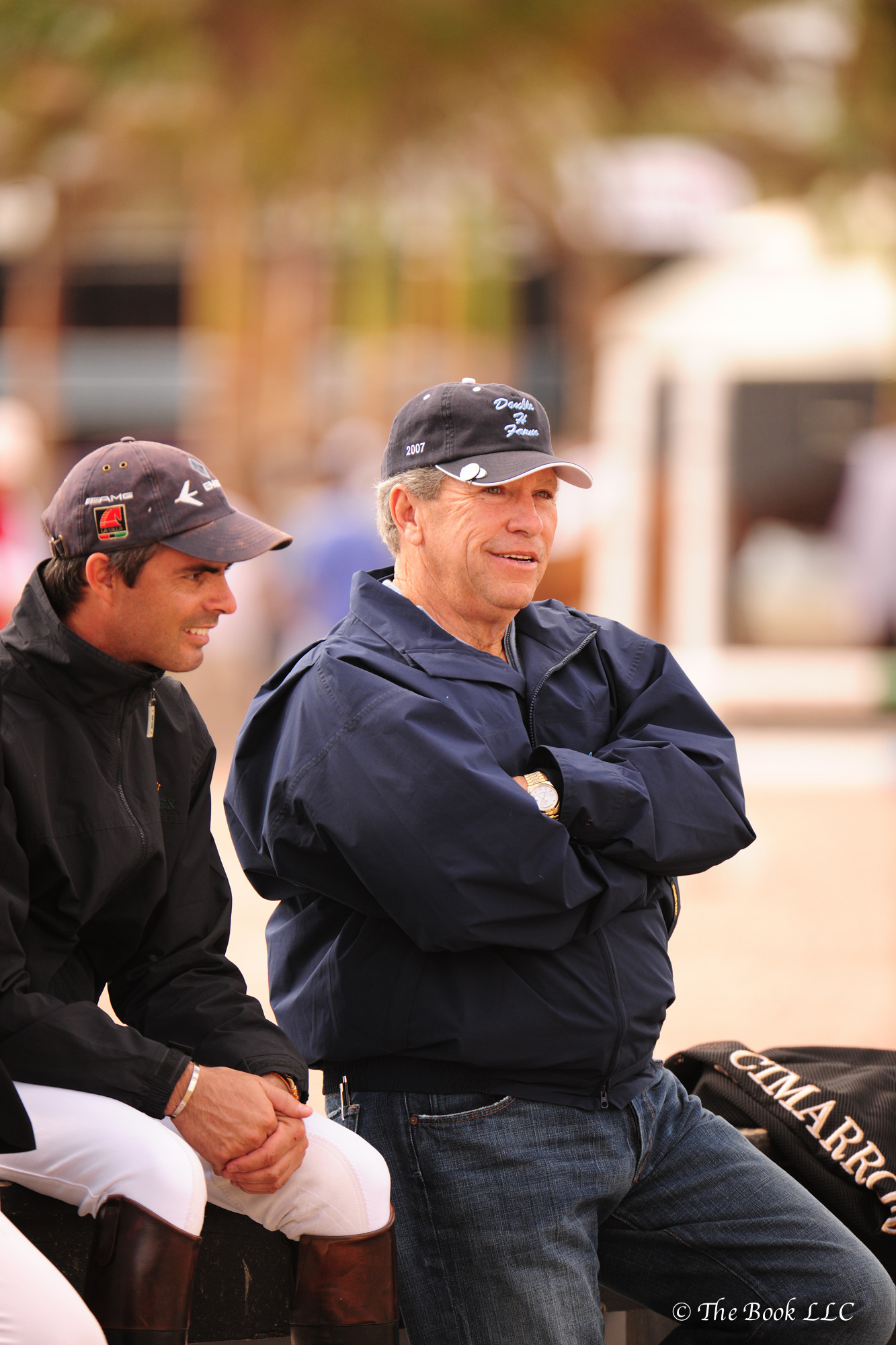
From Chapter 7, Proxy War
Once done at CN, Harrison never imagined he’d run another railroad. He was angry and felt sorry for himself. Certainly, “CP would be the last one” he ever thought he’d lead, given its long-running rivalry with CN. However, in an interview I did with him just prior to his leaving CN in 2009, he said people expected him to “fail at retirement.” His sister Mary said, “He wasn’t ready to retire then.” He had worked 24/7 for more than forty-five years in an industry he loved. He was also accustomed to being the boss and the sense of identity and stature that went with being a CEO.
Fortunately, he had a hobby—horses. His daughter Cayce became involved in show jumping at the age of ten when they lived in Chicago. Jeannie began traveling to events with her as the family became involved in the sport. While she went with Cayce during the week, Hunter would drive her to the barn on the weekends. “He was really supportive of anything I wanted to do in the sport,” Cayce said. Eventually, she would marry another rider, Quentin Judge.
Harrison ultimately ended up with three luxurious horse farms. One is in Connecticut and was originally one of the state’s oldest dairy farms. The subject of a cover story in Equestrian Quarterly, it’s set on eighty-seven acres of rolling New England farmland. There are twenty stalls in the main barn, and a total of forty on the property. There is a 3.5-acre Grand Prix field, a foaling barn, apartments, and a party barn (a.k.a. games room) near the tennis court and swimming pool. There are three homes—two of which have in the past been occupied by his daughters and their families, and the main home, 15,000 square feet, made of timber and local stone. It has indoor and outdoor kitchens, a cinema room, a gold simulator, a putting green (at one point, Harrison was a two or three handicap golfer), a trophy room, and a wine cellar. For more than five years, the expansive estate was looked after by Libby [Harrison, Hunter’s older daughter] when Hunter and Jeannie weren’t there.
The other two farms are in Florida in a ritzy enclave where the Gates, Bloombergs, Spielbergs, and Springsteens nest (their daughters are also equestrians). The main one is set on one of the last large parcels within walking distance of the Winter Equestrian Festival. It too has three dwellings that include homes and apartments, a spectacular barn with another packed-to-the-rafters trophy room, as well as a “quiet room” on top for Harrison, with a panoramic view of the property and no electronics (he liked quiet “think time” each day). The third horse farm, which is nearby, was an investment in partnership with a Pittsburgh real estate magnate. Double H Farm bought the partner out in late 2017 and then listed it for sale at $36 million. The Harrison residence is a few minutes away in an exclusive community.

Cayce and Quentin founded the family’s horse business, although Harrison hovered. Post-CN, “he was involved more in the barn… which I simultaneously dreaded and appreciated,” Cayce said in May 2017. “Because he’s tough and he’s argumentative and the two of us can really butt heads.” Quentin said Cayce and her dad were very much alike. In spite of Harrison becoming an instant expert on horses, Cayce came to value being challenged by him. She’s not alone. McLain Ward, winner of two Olympic golds and top ranked in the world in 2017, was in a professional partnership with Harrison during two phases of his career and considered him a mentor.
Whether it was big railroads or big sports, “there are a lot of similarities,” Ward said. “You’re held accountable.” Harrison, Ward said, reminded him of his late father—forceful and demanding, like a football coach from the 1950s or ‘60s. People who want to do well in life were drawn to him: “You aim for the stars.” Together, they owned world championship horses—and like any professional sport, they tried to draft a strong team. Similar to how he recognized railroading stars, Ward said Harrison had an eye for talent in show jumping. As a result, the family’s Double H Farm is “one of the most, if not the most, respected private teams in the sport,” Ward said. “There isn’t an event they haven’t won.”
Although he loved the sport’s scene, created a prestigious brand with Double H, invested in a major equestrian center in Florida, and successfully bred and sold many animals, by 2010 and 2011, Harrison was bored and frustrated. Libby said he was “just kind of lost.” He’d be in the kitchen telling people how to cook and clean. Jeannie also noticed her husband pacing in the stalls around the farm. “When he’s not happy, no one is happy,” his granddaughter Mackenzie said. Her sister Morgan added that, “He drove everyone crazy.” Like a tiger in a cage, Harrison wanted out. He needed to work. On top of that, the joke was that Jeannie was simply sick of having him around the house.
“He’d be like, ‘Jeannie, where are you going?’” Cayce said. “He’s never asked her that in fifty years of marriage, probably because every single day he was doing his own thing and worried about his own schedule.”
Harrison’s retirement didn’t last long. In 2011, he got a call about the possibility of taking over at Canadian Pacific (CP) railway and by August 2012, he had become the President and CEO of CP. He made another bold move in March 2017, when he took over as CEO of CSX railroad. Sadly, Harrison passed away in December 2017 after complications from an illness. His legacy lives on not only in the changes he wrought in the railroad industry, but also in the influence of Double H Farm horses and riders on the show jumping world.
“Railroader” is available on Amazon and and at Barnes & Noble.





